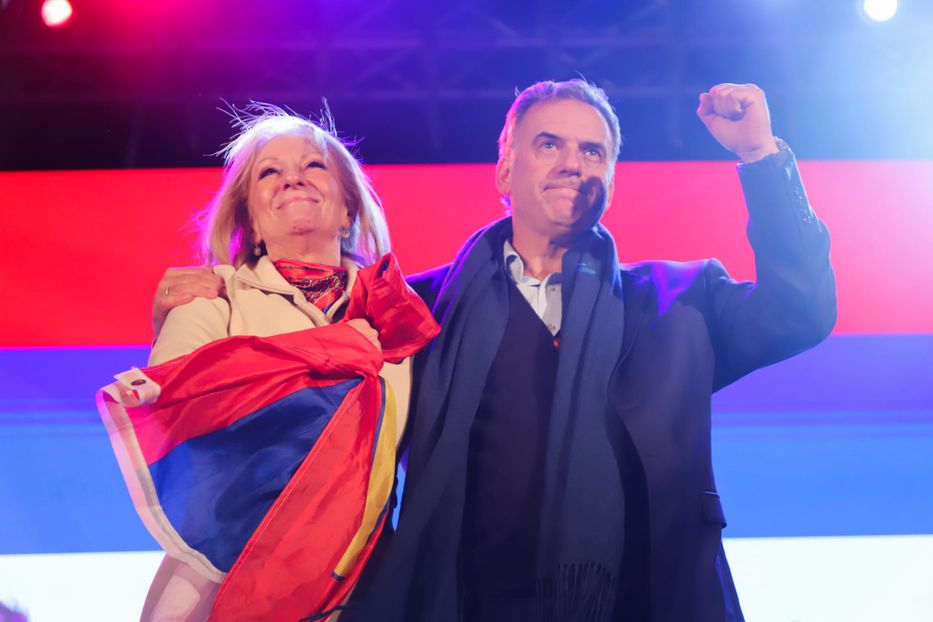
Yamandú Orsi, from the Broad Front (Frente Amplio—FA), is the president-elect of Uruguay. He will take office on March 1, 2025, and lead the country until 2030.
This marks a consolidation of progressive forces as the majority in Latin America, including notable popular governments in Mexico, Brazil, Venezuela, Colombia and Chile. On the other side of the spectrum, representing the right and almost isolated in the region, is Javier Milei, the president of Argentina.
President-elect Orsi delivered a speech to supporters during the celebrations in the capital, Montevideo: “Once again, the country of liberty, equality and fraternity triumphs. I will be the president who repeatedly calls for national dialogue to find the best solutions, carefully listening to what others have to say.”
He will need to foster dialogue, as it will be essential for governing: The Broad Front (FA) will hold a slim majority in the Senate (16 out of 30 seats, plus the potential vote of Vice President-elect Carolina Cosse) but will be in the minority in the Chamber of Deputies (48 seats to 49).
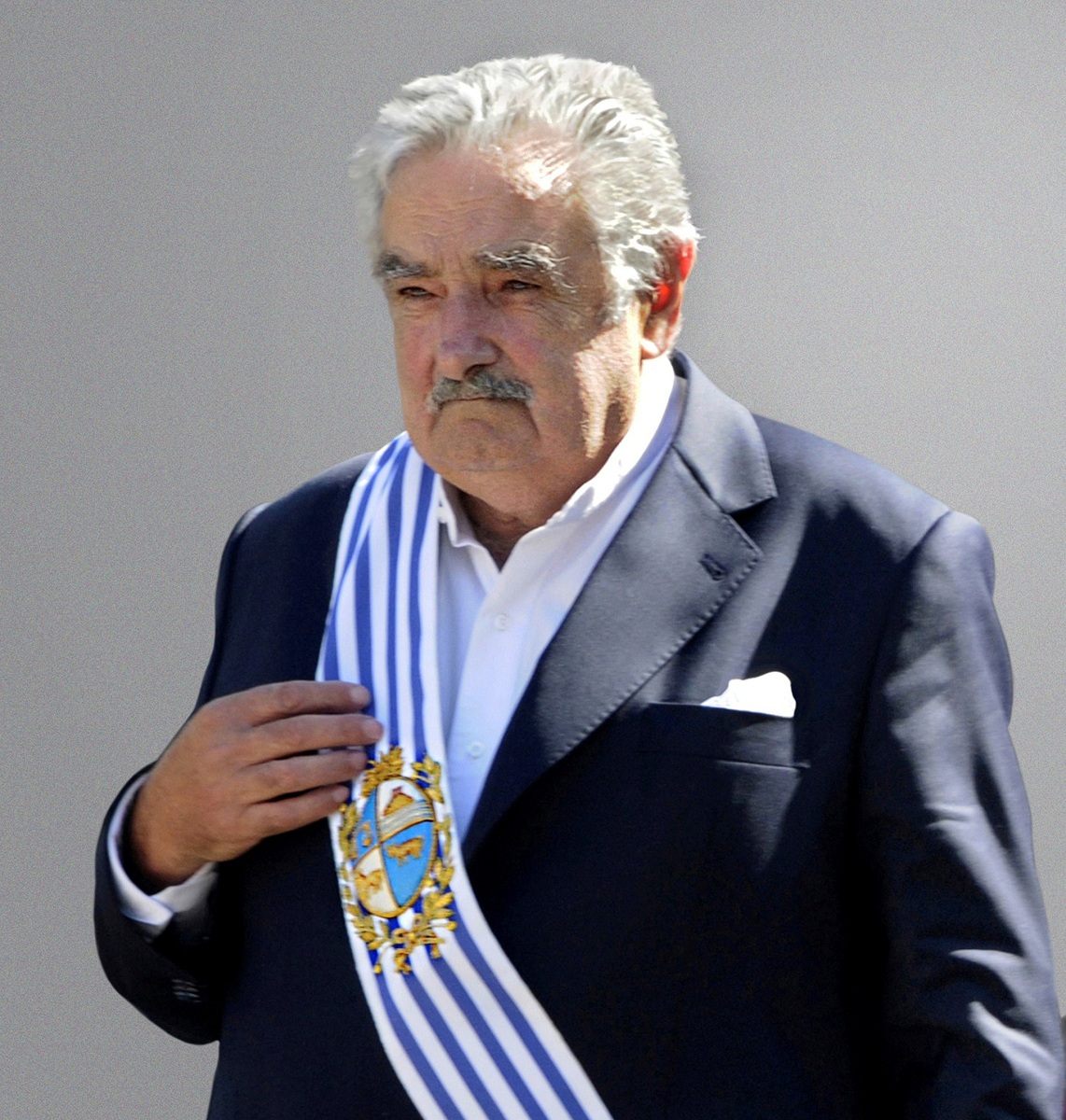
Orsi, aged 57, hails from the city of Canelones and is a history teacher. He represents a modern and moderate left. His political mentor is former president José “Pepe” Mujica, a one-time member of the leftist Tupamaro movement who was tortured during a period of U.S.-backed military dictatorship and was known for living a simple lifestyle as president in line with his critique of capitalism’s focus on stockpiling material possessions.
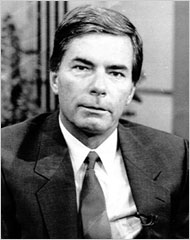
CovertAction Magazine founder Philip Agee made his decision to resign from the CIA in the 1960s after he was repulsed by torture being carried out by the Uruguayan police against suspected Tupamaro operatives, about whom Agee and his colleagues had compiled blacklists that they gave to the police.
Both Mujica and Orso are members of the Popular Participation Movement (formerly Tupamaros), which is part of the Broad Front. Orsi came of age politically during Uruguay’s military dictatorship from 1973 to 1983 and focused his campaign on promoting environment-friendly policies and greater social justice.
The Broad Front won the runoff election with 49.84% (1,196,798) of the valid votes—4.30% were blank or void—against the 45.87% (1,101,296) obtained by right-wing candidate Álvaro Delgado.
Delgado was the representative of outgoing president Luis Lacalle Pou, who could not run for re-election as Uruguay does not allow it, despite finishing his term with a more than 50% positive approval rating. With more than 2.3 million citizens eligible to vote, turnout in this second round was 87.3% of the electoral roll.
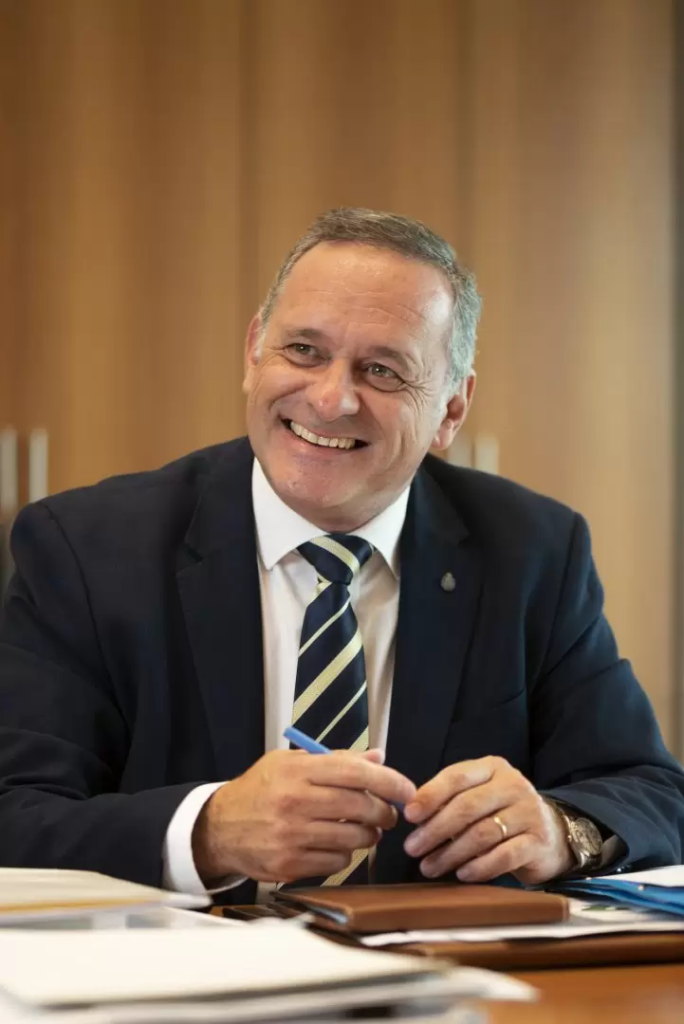
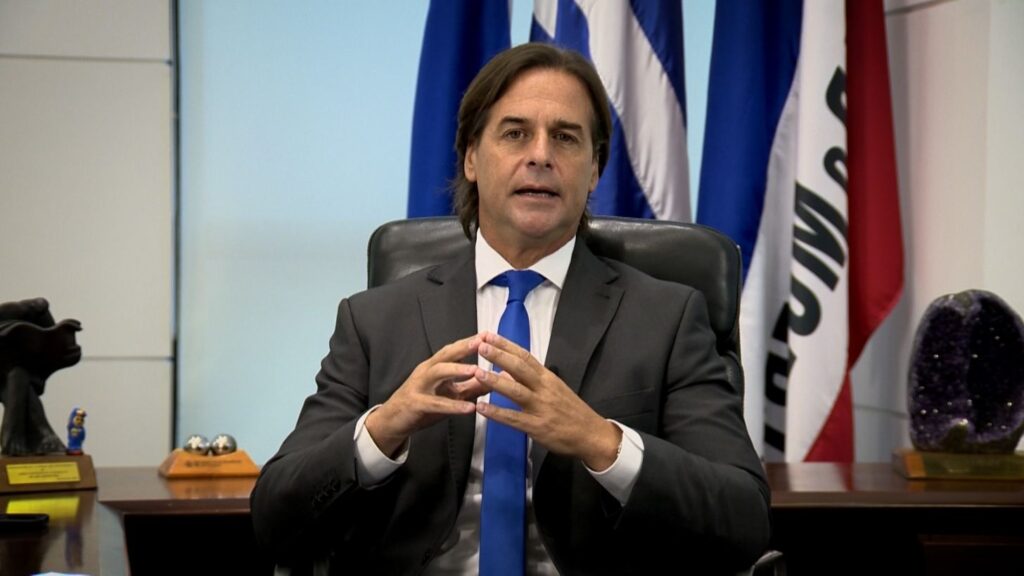
The leftist Broad Front was founded in 1971, bringing together various parties: from center-left social democrats and Christian democrats to the left of the former Tupamaro guerrilla movement and Marxist factions.
Thanks to its internal democracy and the dedicated efforts of its grassroots supporters, it has built a shared identity: They are “frenteamplistas.” Since 1999, it has been the country’s leading political force in every national election and governed for 15 consecutive years, with Tabaré Vázquez (2005-2010 and 2015-2020) and José Mujica (2010–2015) as presidents.
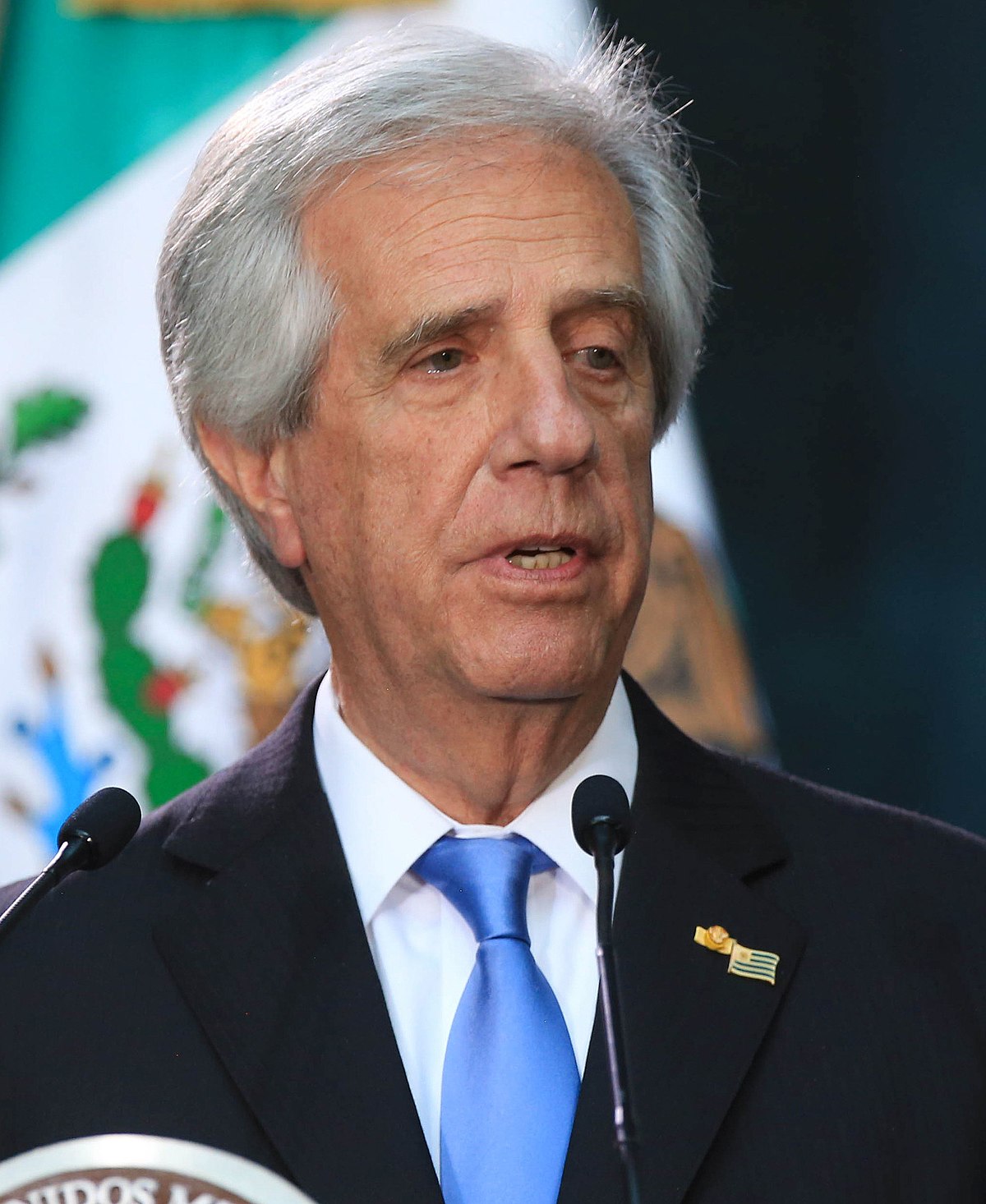
In both 1999 and 2019, it won the first round but lost in the runoff to Lacalle Pou. This time, however, the outcome was different, as it defeated the united right-wing coalition that makes up the current government: the National and Colorado parties, the far-right Cabildo Abierto, and a couple of smaller groupings.
The tradition of an orderly democracy was reaffirmed once again in Uruguay: The ruling party’s candidate promptly acknowledged the results. “I want to send, along with all the coalition members, a warm embrace and congratulations to Yamandú Orsi and the Broad Front,” said Delgado.
While he lost the election, he stated he does not feel “defeated,” calling his concession speech “the most difficult of his life.” Shortly afterward, Luis Lacalle Pou welcomed Orsi to the Executive Tower Palace to begin the transition process.
The Campaign Pillars
The primary concern for Uruguayans is insecurity, with a high and rising crime rate of 11.2 per 100,000 inhabitants. According to a survey conducted by Cifra in June, 47% of respondents identified insecurity as their main issue. Violence linked to drug trafficking is the greatest concern, with 55% of homicides occurring in Montevideo. Following insecurity, economic issues and employment rank as top priorities. On the other hand, the Broad Front’s progressive platform focused on addressing corruption, lack of transparency, inequality, and child poverty as critical challenges for the country.
During the campaign, Yamandú Orsi had to endure fake news: On March 13, Orsi, at that time a pre-candidate for his political force, spoke to the entire country after being accused of a supposed incident of violence against a trans woman that occurred in June 2014. “They are not only attacking a political force here, but also a candidate, a person, and a family,” he said. In September, the prosecutor of Ciudad de la Costa, Sandra Fleitas, filed the investigation and charged Paula Díaz, the trans woman who had made the accusation, and Romina Celeste Papasso, who orchestrated it.
How the Broad Front Built Its Victory
Alejandro Sánchez, campaign manager, highlighted the Broad Front’s bet on the interior of the country with the selection of candidate Orsi.
Although it is historically true that the Broad Front wins in large urban centers and, despite losing in most of the departments in the interior, this time it achieved very good results by gaining many votes in those traditional strongholds of the National Party.
While the Broad Front only won in 5 of the 19 districts (Montevideo, its main source of votes, along with Canelones, San José, Paysandú, and Salto), it improved its performance in 18 of the 19.
The future government will need to be “much bolder” when seeking agreements and be willing to “incorporate the perspectives of others,” emphasized Senator Sánchez.
For his part, Pablo Álvarez, in charge of International Relations for the Broad Front, believes that, “in the result of the first round, the Broad Front had consolidated its own majorities in the Senate. The history of the runoff shows that, in general, the Broad Front grows between six and eight points from the first to the second round, while the current governing coalition, when its votes were combined, lost between three and four points. So, there were historical and contextual elements in the voting result that gave us great possibilities of victory.”
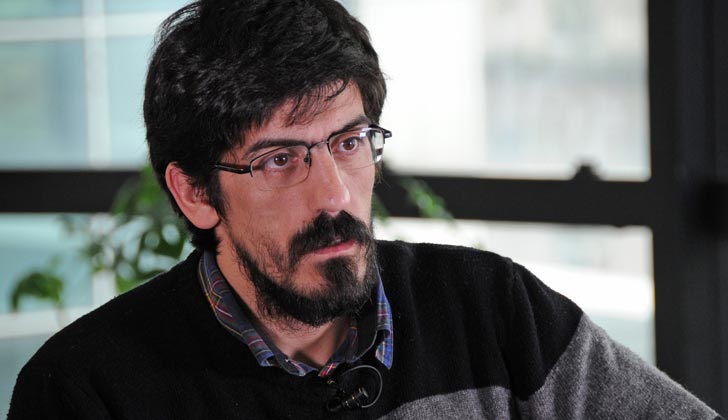
After the defeat against Lacalle Pou in 2019, the Uruguayan left-wing party held its internal Congress with a deep self-criticism. The party’s activists went across the country to ask various social and civil organizations what the flaws of their previous government had been and what proposals they had for the future. The campaign was called “The Broad Front Listens to You.”
Despite the favorable polls, “taking those elements into account, the strategy was to quickly travel across the entire country for the fourth time with all the Broad Front’s leaders. We focused on central issues: governability, honorability, which were mainly highlighted in the debates. I believe that was the core of the campaign,”
Álvarez concludes. The result was a significant increase in electoral support in the interior of the country, where the grassroots committees multiplied.
Direct support from outside the party and indirect manifestations also contributed.
A notable case is that of the former Deputy Minister of Foreign Affairs in the current government, Carolina Ache, who refused to vote for Delgado because she knew what had been done regarding the issue of the change of passport for the Uruguayan drug trafficker Sebastián Marset, who was arrested in Dubai.

“The victory of the formula proposed by the Broad Front is the result of much work, agreements, and, above all, a country that has suffered a huge setback in the last five years,” highlighted Verónica González, a grassroots activist of the FA. “The challenge is to provide public policies with work. Militancy must be a powerful tool for transforming reality,” González added.
Historian Sylvia Valdés explains the political importance of this phenomenon: “This method helped to neutralize, during the right-wing government’s term, authoritarianism, the rise of conservatism, and the growing inequalities that shaped a rather grim Uruguay. With a considerable increase in drug trafficking and crime in general. It is the world that neo-liberalism has led us to.”
Pablo Álvarez adds, “The importance of the strengthening of the Broad Front as a party, its structure, and militancy. Throughout this process, in the end, it was they who ended up supporting and backing the political action.”
There was a flood of Uruguayans residing in Argentina who traveled to vote, as it is one of the two Latin American countries, along with Suriname, that does not allow voting from abroad.
Despite the reduced price of the ticket due to Argentina’s poor economic situation, 35% of those living there traveled for the first round of the election.
For the runoff, however, resident activists in Argentina and the Broad Front itself made enormous efforts to reduce the costs to less than half. Additionally, they ensured that many of the voters did not pay for their ticket and received accommodation and meals in Uruguay.
These were the votes that came from “a more distant interior,” as the activists prefer to call it, to help the Broad Front return to power in Uruguay.
One lingering question is the response of the incoming Trump administration whose foreign policy apparatus will be run by right-wingers like Marco Rubio, with a history of wanting to intervening in Latin American countries to advance regime change, as Secretary of State.

Orsi’s moderate positions and regional support for his government make it unlikely that the Trump administration would engage in political skullduggery.
Times have changed since the Cold War and the U.S. is not as powerful as it once was—witness the failure of the U.S. in trying to unseat Venezuela’s sociaist government, despite the mounting of numerous coup attempts, and return to power of the socialists in Bolivia along with the resilience of the Ortega government in Nicaragua and Cuba’s socialist government in the fase of a long-standing Yankee regime-change operation.

CovertAction Magazine is made possible by subscriptions, orders and donations from readers like you.
Blow the Whistle on U.S. Imperialism
Click the whistle and donate
When you donate to CovertAction Magazine, you are supporting investigative journalism. Your contributions go directly to supporting the development, production, editing, and dissemination of the Magazine.
CovertAction Magazine does not receive corporate or government sponsorship. Yet, we hold a steadfast commitment to providing compensation for writers, editorial and technical support. Your support helps facilitate this compensation as well as increase the caliber of this work.
Please make a donation by clicking on the donate logo above and enter the amount and your credit or debit card information.
CovertAction Institute, Inc. (CAI) is a 501(c)(3) non-profit organization and your gift is tax-deductible for federal income purposes. CAI’s tax-exempt ID number is 87-2461683.
We sincerely thank you for your support.
Disclaimer: The contents of this article are the sole responsibility of the author(s). CovertAction Institute, Inc. (CAI), including its Board of Directors (BD), Editorial Board (EB), Advisory Board (AB), staff, volunteers and its projects (including CovertAction Magazine) are not responsible for any inaccurate or incorrect statement in this article. This article also does not necessarily represent the views the BD, the EB, the AB, staff, volunteers, or any members of its projects.
Differing viewpoints: CAM publishes articles with differing viewpoints in an effort to nurture vibrant debate and thoughtful critical analysis. Feel free to comment on the articles in the comment section and/or send your letters to the Editors, which we will publish in the Letters column.
Copyrighted Material: This web site may contain copyrighted material the use of which has not always been specifically authorized by the copyright owner. As a not-for-profit charitable organization incorporated in the State of New York, we are making such material available in an effort to advance the understanding of humanity’s problems and hopefully to help find solutions for those problems. We believe this constitutes a ‘fair use’ of any such copyrighted material as provided for in section 107 of the US Copyright Law. You can read more about ‘fair use’ and US Copyright Law at the Legal Information Institute of Cornell Law School.
Republishing: CovertAction Magazine (CAM) grants permission to cross-post CAM articles on not-for-profit community internet sites as long as the source is acknowledged together with a hyperlink to the original CovertAction Magazine article. Also, kindly let us know at info@CovertActionMagazine.com. For publication of CAM articles in print or other forms including commercial internet sites, contact: info@CovertActionMagazine.com.
By using this site, you agree to these terms above.
About the Author
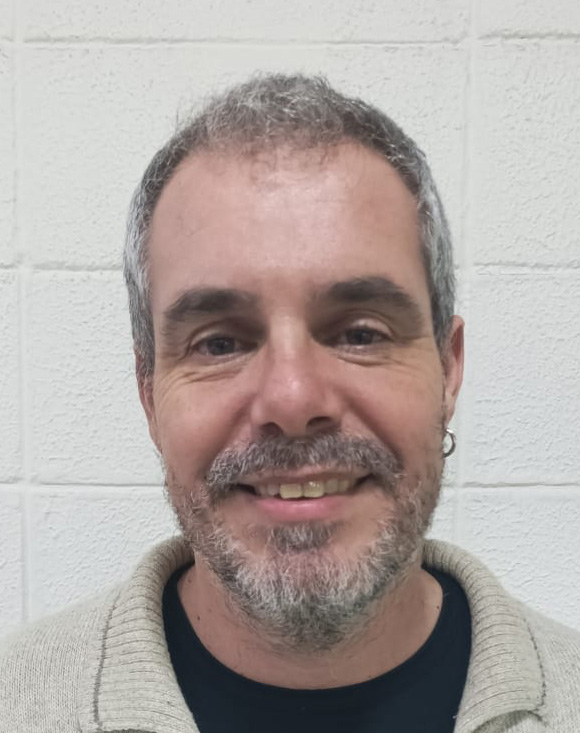
Hernán Viudes is an independent journalist and a graduate from The Faculty of Social Sciences at the University of Buenos Aires. He lives in Argentina and enjoys music, culture and football.
Hernán can be reached at hernanviudes@gmail.com.


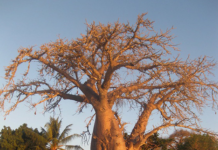

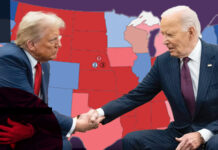






It’s great when people win elections and than wait 2 or 3 months before actually starting in the posts giving plenty of time for opponents to bump them off!